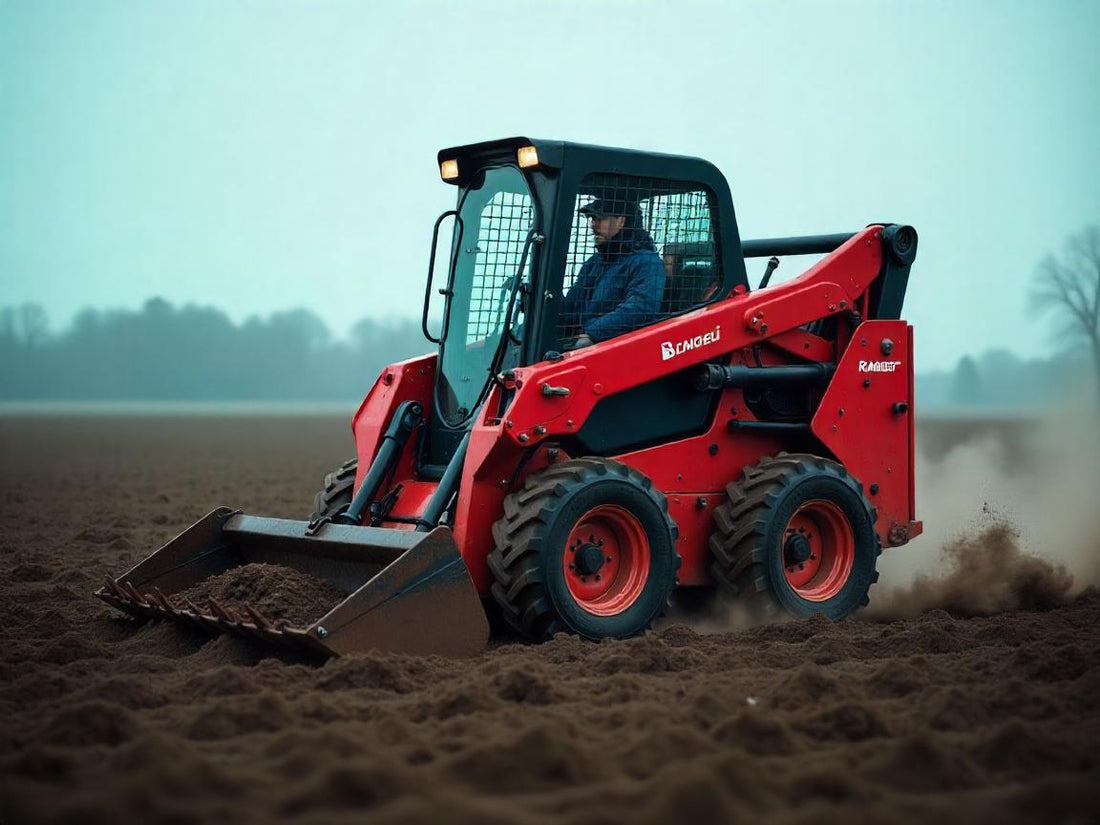Tractors are the standard gear staple for considerable farms. The skid steer is classic agricultural machinery that has become more prevalent in the agricultural industry. When comparing a skid steer to a tractor for ranches, which results in more efficient functions?
Benefits of a Skid Steer for Farm Use
While skid steers are connected with construction zones, the earliest sample was designed to clean 2-story turkey barns. Skid steers have grown into 1 of the multiple adaptable segments of heavy equipment.
The versatility of skid steers makes them an excellent choice for farm work. With their various attachments, farmers can use a skid steer for tasks such as clearing land, mowing grass, removing debris, digging trenches, or managing their property. Some common attachments for skid steers include:
-
Augers
-
Bale grabs
-
Grapple buckets
-
Grapple forks
-
Rakes
-
Mulchers
-
Brushcutters
-
Mowers
-
Manure scrapers and buckets
-
Material handling arms
- Pallet Forks
Skid steer extensions are effortless to switch out and may require only 1 person to do so, which is advantageous for farmers who don’t have a considerable workers. Many of these elongations are not understood for tractors, forming skid steers the only alternative for some projects.
When comparing a farm tractor versus a skid steer, the lack of a needed revitalization process is another advantage that skid steers have. Many skid steers have cooling backpacks that stop overheating, so farmers can operate for prolonged periods without stopping. This leads to an efficient workday, which is practical for extensive operations and small farms respectively.
For farmland in mountainous regions or challenging landscapes, a skid steer with tracks is undoubtedly a superior choice compared to a wheeled compact tractor. Because of its compactness, skid steers have a momentary turning radius and can maneuver into impenetrable spaces.
Drawbacks of a Skid Steer
While skid steers are an excellent enhancement for a farm supplies caravan, they fall short of replacing tractors because of these crucial drawbacks:
- Scarcity of a drawbar, so they cannot hold cargoes
-
Minimal ground support
- Demand firm base
Advantages of a Tractor on the Farm
Tractors have been widespread in agriculture, and for an adequate explanation. Tractors have a broad spectrum of choices in horsepower, which is excellent for heavy-duty assignments. This power assembles tractors excellent for driving on irregular terrains and pulling serious loads, made possible by cast-iron front axles.
Liabilities of Tractors
There are occasional downsides of farm tractors, including that they demand regeneration, which can lead to rest. They also have more occasional application opportunities compared to skid steers.
Skid Steer vs. Tractor: The Essential Takeaways
After analogizing a skid steer and a consolidated tractor, it’s evident that each has its importance in a farm job. Farmers who require a decisive machine or hauling qualifications should consider a tractor for their fleet. For farmers who can perform with more horsepower, a skid steer is a worthwhile piece of gear to have on the farm due to its efficiency and compactness.
Ultimately, the “skid steer vs. tractor” efficiency battle depends on your farm’s unique demands. Skid steers shine in tight spaces and quick, multi-attachment tasks, while tractors dominate large-scale fieldwork and heavy-duty hauling. Assess your priorities—whether it’s maneuverability, fuel efficiency, or long-term ROI—and match them to the machine’s strengths. For mixed operations, combining both might be the ultimate win. Ready to optimize your workflow? The right choice isn’t about the “best” machine—it’s about the best fit for your land.

